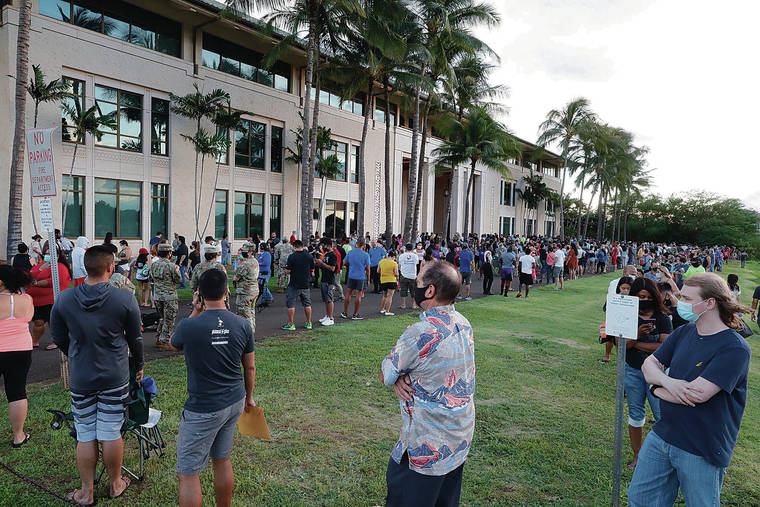The resiliency of our democracy is directly dependent on the fairness, quality and level of inclusivity of our elections. We need to ensure that everyone who qualifies, especially those in marginalized communities far from urban centers, has ease of access to voting. Vote by mail (VBM) worked better than anyone expected in 2020 despite the risks associated with the COVID-19 pandemic.
It is encouraging that there are several bills before this legislative session that propose the next logical step of automatic voter registration (AVR). That includes bills introduced in the state House of Representatives by Speaker Scott Saiki and in the Senate by longtime AVR champion Sen. Karl Rhoads. One bill, introduced by Rep. Mark Nakashima, received unanimous support at its first hearing. Hopefully that legislative momentum will reverberate.
AVR is a policy tool that will allow our government to make the voter registration process more efficient, convenient and cheaper. Citizens who are at least 18 years old when applying for, or renewing their ID card or driver’s license at the Department of Motor Vehicles (DMV), would be automatically registered to vote or have their updated information sent to the county election offices — unless they opt out. The individual still has responsibility for updating their voter registration when they move.
Without ease of access and convenient reminders during nonelection years, many otherwise interested eligible voters may not register to vote at all or will register at the last minute. There were long lines on General Election Day 2020 at the limited number of voter service centers here. That may have been the result of individuals using Hawaii’s same-day registration law to register to vote on the day they wished to cast their ballot.
It’s prudent for our state to support voter rights by providing another convenient avenue to register to vote or update personal information while carrying out a task that makes everyone’s to-do list: renewing their driver’s license or getting their state ID.
AVR would help Hawaii residents in the Armed Forces stationed off-island. Having their voter registration automatically updated — with an opt-out provision — when they renew their driver’s license by mail, would be a great convenience to these service members.
Currently registering to vote seems to be emphasized primarily during an election year. I believe that the only people who make the effort to register and vote are those who have already decided whom to vote for. Therefore the results of our elections are not properly reflective of all the people who are eligible to vote, pay taxes and have unmet needs that need to be addressed by the government.
We can save money — an estimated $1 million per election cycle — and raise awareness of voter registration through AVR. It costs approximately 30 times less to process electronic applications compared to paper. For those who don’t opt out of AVR at the DMV, it may be the only way that they learn about their legal right to vote.
AVR has worked elsewhere. Oregon was the first state to implement this system in 2016; more than 270,000 registered via AVR there. Now there are more than 20 states and the District of Columbia that have adopted AVR — from ruby-red Kentucky to bright-blue California.
Improving access to the vote ensures a vibrant democracy and elected officials who represent the will of their constituents. AVR is a smart, practical and economical way to modernize our local elections. Do contact your elected official and urge them to support AVR.
Caroline Kunitake is a local advocate for good government and a more equitable society; Dave Anderson is a retired U.S. Navy commander and a board member of Common Cause Hawaii.

